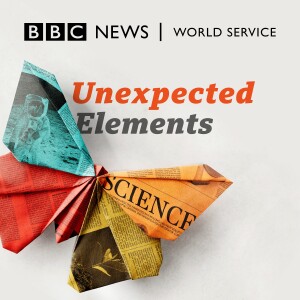
Counting the heat health threat from climate change
 2020-08-09
2020-08-09
Download
Right click and do "save link as"
If the world does not curb its greenhouse gas emissions, by the end of this century, the number of people dying annually because of extreme heat will be greater than the current global death toll from infectious diseases - that’s all infectiousness diseases, from malaria to diarrhoeal diseases to HIV. This is the grim assessment of climate researchers and economists of the Climate Impact Lab in the largest global study to date of health and financial impacts of temperature-related deaths. Roland Pease talks to Solomon Hsiang of the University of California, Berkeley.
UK ecologists have new insights about how diseases jump the species barrier from wildlife to humans. With a global survey of land use and biodiversity, they’ve discovered that when natural habitats are converted to farmland or urbanised, the animal species that survive the change in greatest number are those species which carry viruses and bacteria with the potential to spread to us. This is particularly the case, says Rory Gibb of the University College London, with disease-carrying rodent species, bats and birds.
Do past infections by mild cold coronaviruses prepare the immune systems of some people for infection by SARS-CoV-2? Could immune memory T cells made in response to these cold viruses lessen the severity of Covid-19? Alessandro Sette and Daniela Weiskopf of the La Jolla Institute for Immunology lead the team which published the latest contributions to these questions.
Anglerfish are perhaps the weirdest inhabitants of the deep sea. Their sex lives are particularly strange because finding partners in the dark expanse of the ocean abyss is hard. Females are much bigger than males. When a male finds a female, he latches on her body with his teeth and over a couple of weeks, their flesh fuses so he is permanently attached. Her blood supplies him with all the food and oxygen he needs and he becomes an ever present supply of sperm whenever she produces eggs. But this fusion should be impossible. The female’s immune system should be rejecting her partner like a mismatched organ transplant. German scientists have now discovered that these fish do this by giving up the production of antibodies and immune T cells – essential for fighting infections in all other animals including us. It was a shocking discovery for Prof Thomas Boehm at the Max Planck Institute in Freiburg.
Anyone else had their flight cancelled? The COVID 19 pandemic has had a huge impact on air travel – air traffic in 2020 is expected to be down 50 per cent on last year. But beyond the obvious disruption to business and people’s lives, how might the quieter skies affect our weather and climate?
One curious listener, Jeroen Wijnands, who lives next to Schiphol airport in the Netherlands, noticed how there were fewer clouds and barely any rainfall since the flights dropped off. Could airplanes affect our local weather?
Also, did we learn anything from another occasion when airplanes were grounded, during the post-9/11 shutdown? How will the current period impact our future climate?
Marnie Chesterton investigates this question and discovers some of the surprising effects that grounded aircraft are having: on cloud formation, forecasting and climate change.
(Image: Relatives of heatstroke victims, their heads covered with wet towels, wait outside a hospital during a heatwave in Karachi. .Credit: Rizwan Tabassum/AFP via Getty Images)
view more
More Episodes
Seismic events on Mars
 2022-10-30
2022-10-30
 2022-10-30
2022-10-30
The most powerful explosion ever recorded
 2022-10-23
2022-10-23
 2022-10-23
2022-10-23
The final moments of DART
 2022-10-01
2022-10-01
 2022-10-01
2022-10-01
Should we mine the deep sea?
 2022-09-24
2022-09-24
 2022-09-24
2022-09-24
The genetics of human intelligence
 2022-09-11
2022-09-11
 2022-09-11
2022-09-11
The China Heatwave and the New Normal
 2022-09-04
2022-09-04
 2022-09-04
2022-09-04
Surprises from a Martian Lake Bed
 2022-08-28
2022-08-28
 2022-08-28
2022-08-28
Deadly drought
 2022-08-20
2022-08-20
 2022-08-20
2022-08-20
Icelandic volcano erupts again
 2022-08-14
2022-08-14
 2022-08-14
2022-08-14
The first galaxies at the universe's dawn
 2022-07-30
2022-07-30
 2022-07-30
2022-07-30
Heat waves in the Northern Hemisphere
 2022-07-23
2022-07-23
 2022-07-23
2022-07-23
Long Covid ‘brain fog’
 2022-07-11
2022-07-11
 2022-07-11
2022-07-11
Extreme heat death risk in Latin America
 2022-07-03
2022-07-03
 2022-07-03
2022-07-03
Monster microbe
 2022-06-26
2022-06-26
 2022-06-26
2022-06-26
Thirty years after the Earth Summit
 2022-06-19
2022-06-19
 2022-06-19
2022-06-19
012345678910111213141516171819
Create your
podcast in
minutes
- Full-featured podcast site
- Unlimited storage and bandwidth
- Comprehensive podcast stats
- Distribute to Apple Podcasts, Spotify, and more
- Make money with your podcast
It is Free
- Privacy Policy
- Cookie Policy
- Terms of Use
- Consent Preferences
- Copyright © 2015-2024 Podbean.com


